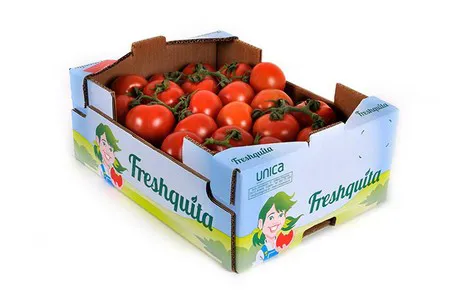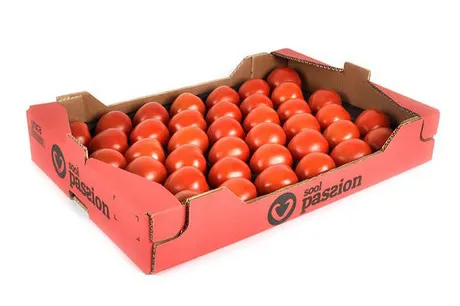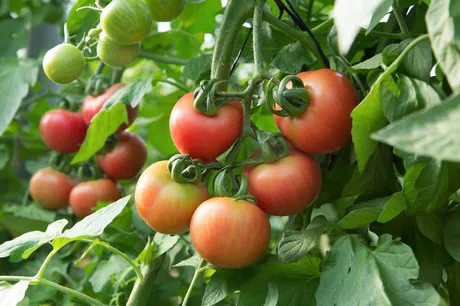"It is very difficult to determine what this tomato campaign will be defined by, since there are many aspects to take into account, such as the weather, pests, etc. What we do know is that we will have more kilos than last season and that we will have new varieties," says David Hernández Trujillo, a domestic tomato trader at Unica.

His work focuses on achieving economic sustainability for the associated producers, maintaining a commitment to quality and service to the customers. We had a chat with him about the keys behind this product, about the most demanded varieties and about how Unica's tomatoes are conquering new international markets.
Unica Fresh currently has 11 tomato varieties (without counting the cherry ones): Kumato tomato, hanging tomato, on the vine tomato, loose tomato, pink Barbastro tomato, Pink tomato, Plum tomato, Cocktail tomato, Oxhart tomato, salad tomato and Raf tomato. "We have availability of tomatoes all year round, except with seasonal varieties, such as the Pink, on the vine or Oxhart," says David Hernandez Trujillo, domestic tomato trader at the Almeria-based second-grade cooperative Unica Group.

According to the trader, in Europe, where Unica has its most important markets, every tomato variety is in demand, especially the on the vine and Plum tomatoes, depending on the prices.
In addition to Europe, the company wants to expand in the future and take over new markets. "We have a strong presence in the domestic market, as well as in Germany, the UK, Poland and Austria. We are trying to gain access to the United Arab Emirates and Asia, but without leaving the European market behind," he says.
In general, David Hernández claims that all tomatoes have the same nutritional qualities, and believes that in order for a tomato to be considered a quality product, "its skin has to be soft and slightly shiny. It is very important to always look on the back, because that's where they ripen first. You need to check the texture of the tomato in order to make sure that the ripeness is at the right point, neither too mature, nor too green. The weight is also important. It needs to have some weigh. Lastly, the smell is also a key factor. It should have a sweet and fresh smell."
One of the company's most special tomatoes is the pink Barbastro, not only because of its pink color, but also its characteristic sweet flavor, which according to David Hernández, is obtained thanks to the climatic conditions and the terrain.

From pink we move on to the green-golden of Kumato tomatoes, another variety that Unica produces and markets.
"The Kumato tomato has a very sweet flavor due to the great amount of fructose it contains, although it also has a touch of sourness. This variety has a greater firmness and juice content than the rest and usually stays in optimal condition for a little longer. The Kumato tomato is not a genetically-modified product. The real origin was a farm in Adra, whose owner realized that tomatoes with more water stress had a different color and a much more intense and sweet flavor," explains the tomato expert.

If there is something that defines Spanish gastronomy, it is bread with tomato; a breakfast classic. Many people may not know that the ideal variety for this delicacy is the hanging tomato, given the large amount of pulp it has.
"Since it's hung, the tomato stays fresher for longer. This type of tomato is harvested before it is fully ripe; it is then sewn into bunches and allowed to ripen by hanging, which requires a dry, ventilated place with little light."
For more information:
José Antonio Sánchez
Business Development and Marketing
M: +34 667 430 134
jasanchez@unicafresh.es
www.unicafresh.es
